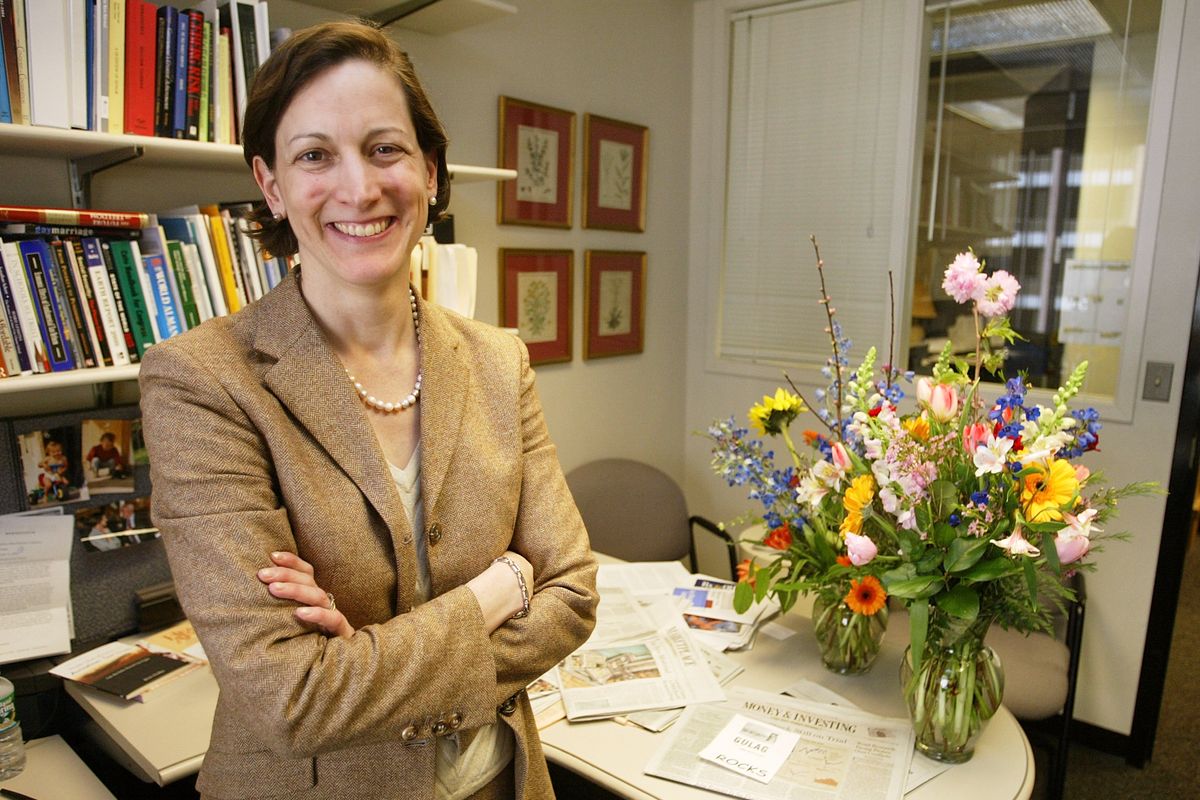NEW YORK (AP) — Jeffrey Goldberg, editor-in-chief of The Atlantic magazine, isn’t modest in his goals. “We want The Atlantic to be the greatest writer’s collective on the planet,” he said in a recent interview.
To that end, he’s added nearly 50 new journalists to his staff this year, financed in part by circulation growth that accelerated after a scoop that fell in his lap in March, when Goldberg was accidentally added to a text chain of Trump administration officials talking about an impending military attack.
A publication that began in 1857 is defying the trends of a troubled media industry. The Atlantic is returning to publishing monthly two decades after dropping to 10 issues a year and experimenting with a magazine-newspaper hybrid online fueled by its competitive stable of writers.
“There are so few news organizations … that are profitable, that are growing, that are doing great journalism, that have scoops and long-form and podcasts and live events,” said Ashley Parker, one of the new hires. “To be at one of the places that’s doing all of that is just awesome.”
A presidential subscriber at the very beginning
The Atlantic’s November issue is a 148-page examination of the “unfinished revolution,” timed to coincide with Ken Burns’ PBS documentary on the American Revolution. The Atlantic’s origins may not trace that far back, but it was started prior to the Civil War by opponents of slavery. Ralph Waldo Emerson, Herman Melville, Harriet Beecher Stowe and Nathaniel Hawthorne were among the renowned writers to sign its mission statement. Abraham Lincoln subscribed.
The Atlantic now has 1.4 million subscribers, a little more than half of them digital only. That’s up from about 400,000 print subscribers in the late 2010s, when the website was not behind a pay wall.
“The whole industry has been through two decades of ‘how do we survive, what do we do, how do we figure this out?’” Goldberg said. “The answer is always there — it’s make high-quality journalism and show the readers of that journalism why it’s worth paying for it. Knock on wood, it’s working.”
If it were that easy, he’d have a lot more company. It helps to have a dedicated ownership group, the Emerson collective, led by billionaire Laurene Powell Jobs.
The Atlantic’s circulation grew by 14% in both 2023 and 2024, the magazine said. By the middle of 2025, readership was up 20% over the previous year, and The Atlantic set records of single-day and one-week circulation gains the week after posting Goldberg’s piece about finding himself on a Signal group chat with Defense Secretary Pete Hegseth and others.
“I’ve told that directly to Donald Trump,” Goldberg said. “You in some ways are like our marketing director. Every time you attack me or The Atlantic, people subscribe.”
Two Pulitzers for their first articles in The Atlantic
The Atlantic’s writing staff includes Jennifer Senior and Caitlin Dickerson, who each won Pulitzer Prizes for their first magazine features — Senior on how the family of 26-year-old Bobby McIlvaine dealt with his death on Sept. 11, 2001, Dickerson on the first Trump administration’s policy separating migrant children from their families.
Anne Applebaum, herself a Pulitzer-winning author, covers national security with Vivian Salama and Nancy Youssef. Mark Leibovich, Tim Alberta, Jonathan Chait and Jonathan Lemire write on politics. Vann R. Newkirk II wrote a vivid look-back recently on Muhammad Ali and Joe Frazier’s memorable third fight.
The Atlantic has also taken advantage of turmoil at the Washington Post to poach about 20 of its journalists, including legendary sportswriter Sally Jenkins, humorist Alexandra Petri and political writers Michael Scherer, Isaac Stanley-Becker and Parker.
“I’m not happy about the travails of The Washington Post — I started at The Washington Post — but I am happy to bring in excellent colleagues,” Goldberg said.
Parker described The Atlantic as a dream job, and said she appreciates the chance to do magazine-style writing with more of a voice. “For every one of my colleagues at The Atlantic who also came from the Post, none of it felt like fleeing,” she said. “It all felt like it was going someplace that was affirmatively exciting.”
Parker has collaborated with Scherer on a cover piece about President Donald Trump’s return to power, and wrote a personal essay about a miscarriage. She’s also written about the Trump family’s closeness with assassinated activist Charlie Kirk, cabinet members’ obsession about how they look on TV and Trump’s takeover of the Kennedy arts center.
Those last three illustrate the hybrid The Atlantic is seeking online — stories that make or enlighten people about news. “We’re not a newspaper,” Goldberg said, “but we’re trying to be part of the conversation every single day of the year.”
The effort to bring magazine-style analysis and new ways of looking at breaking stories is still a work in progress, Parker notes. Among the most-read stories on the site Thursday were Helen Lewis’ piece on a Saudi Arabian comedy festival, a story by Idrees Kahloon on lower education standards and David Brooks’ essay on the need for a mass movement against autocracy.
Reimagining the definition of a magazine for a modern era
While some online stories are “hot takes” that don’t necessarily work, Goldberg deserves credit for reimagining the definition of a magazine at a time of rapid change, said Jeff Jarvis, author of “Magazine,” a book about the genre’s history and downfall in the Internet age.
“I think he’s a bit of a savior of the genre and of the community of magazine writers,” he said. Jarvis also credits Justin Smith, a former Atlantic executive and currently co-founder of Semafor, for creating a series of new products that put The Atlantic on a more solid financial footing before Goldberg’s takeover as editor-in-chief in 2016.
Goldberg’s idea of the “perfect” Atlantic story is beautiful writing, energized by deep reporting with a clear argument and the writer’s voice audible. He wants to entertain and educate, and loves it when a reader becomes absorbed in a story about a topic they might not otherwise have sought out.
“The goal is orchestral, if you will,” he said. “The goal is to have enough different sorts of stories on the site and in print so that there is something for everyone.”
So does he believe he’s reached his goal of gathering the world’s best collection of writers?
“Of course I think that,” he said. “I could always add more, but pound for pound this is the best journalism staff in the world. We’re not the biggest. I couldn’t imagine being the biggest. But the goal is to be the best.”
___
David Bauder writes about the intersection of media and entertainment for the AP. Follow him at http://x.com/dbauder and https://bsky.app/profile/dbauder.bsky.social
By DAVID BAUDER
AP Media Writer



